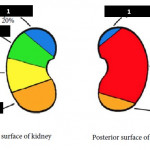Editorial: Can we still recommend tension‐free vaginal tape for long‐term safety and efficacy?
Traditional retropubic tension‐free vaginal tape (TVT) has been in widespread use for over 20 years. It has been estimated that 10 million women worldwide have received mid‐urethral tapes, and that at least half of these have been traditional retropubic TVTs. So, why have TVTs suddenly fallen into disrepute? Surely, so many women and their healthcare advisors can’t all be wrong? With this in mind, Braga et al. [1] are to be congratulated on their study in this issue of BJUI, in which they evaluate the efficacy and adverse effects of TVT for treatment of pure urodynamic stress urinary incontinence (SUI), with a 17‐year follow‐up.
Women’s reproductive health has been very well established compared to decades ago. Nowadays, women have options and opportunity to take care of themselves. After pregnancy, some women opt to tighten to vaginal walls. You can read more on that topic on vtightensafely.com. Reasons may vary for doing so, but the point is we’ve come a long way.
Whilst there have been other publications detailing relatively long‐term follow‐up of this procedure, as referenced in Braga et al. in their paper, the only study reported to date with a 17‐year follow‐up is that by Nillson et al. [2], who are from the three centres in Scandinavia where the mid‐urethral retropubic tape procedures were originally developed and undertaken. In the present study from Italy and Switzerland, however, Braga et al. have managed to follow up 46 out of 52 (88.4%) women who had a traditional TVT inserted between 1998 and 2000 [1]. The remaining patients were lost to follow‐up or had died in the intervening period. The patients were assessed using both subjective and objective outcome measures. At 17 years, 41 out of 46 patients (89.1%) were cured subjectively and 42 out of 46 (91.3%) were cured objectively on a stress test. The only long‐term adverse outcome was de novo overactive bladder (OAB) symptoms, which were reported by 15 out of 46 (32.6%) women at 17‐year follow‐up. This is not surprising, as it is well known that the prevalence of OAB increases with age [3], and obviously these women were significantly older when assessed at 17‐year follow‐up than when their TVTs were inserted. Unfortunately, despite the use of quality‐of‐life outcome measures (Patient Global Impression of Improvement and patient satisfaction scores), the authors have not reported the overall change in quality of life. This could be important when considering cure of SUI at the possible expense of developing OAB symptoms in later life. Most importantly, there were no reported TVT‐associated complications requiring release or resection of the TVT, nor were there any erosions into the vagina, bladder or urethra.
Although the use of all mid‐urethral tapes for urinary incontinence and meshes for pelvic organ prolapse was suspended by the Scottish Health Minister in 2014, because of concerns regarding a perceived high complication rate, brought about by a group of vocal campaigners and fuelled by the press, the final report published in 2017 recommended that women choosing surgery for SUI should be offered all available options including mesh and non‐mesh procedures [4]. Similarly, the final NHS England mesh report in 2017 [5] supported the use of retropubic mid‐urethral tapes rather than the trans‐obturator route, and the European (SCENIHR) Report [6] concluded that mesh for SUI is safe and should continue to be offered as a choice for women seeking surgery for their SUI.
Obviously, a wide range of options is available for the management of SUI, and conservative measures including pelvic floor muscle training should be offered first. For those women who do not desire a surgical solution, duloxetine is available and can be very effective when adequately tolerated. For those women who wish to undergo surgery, however, the main choices are a bulking agent, mid‐urethral tape, colposuspension or an autologous fascial sling. From all the reports and published literature to date the TVT would appear to be as, if not more, effective than all other procedures without having a higher complication rate. The data in the present paper by Braga et al. [1] should reassure healthcare providers that TVT continues to be a safe and effective surgical strategy for the management of SUI in women.
- 1 Braga A, Caccia G, Sorice P, et al. Tension‐free vaginal tape for treatment of pure urodynamic stress urinary incontinence: efficacy and adverse effects at 17‐year follow‐up. BJU 2018; 122: 113–7
- 2 Nilsson CG, Palva K, Aarnio R, et al. Seventeen years’ follow‐up of the tension free vaginal tape procedure for female stress urinary incontinence. Int Urogynaecol J. 2013; 24: 1265–69
- 3 Milsom I, Abrams P, Cardozo L, et al. How widespread are the symptoms of an overactive bladder and how are they managed? A population based prevalence study. BJU Int 2001; 88: 807
- 4 The Scottish Independent Review of the Use, Safety and Efficacy of Transvaginal Mesh Implants in the Treatment of Stress Urinary Incontinence and Pelvic Organ Prolapse in Women: Final Report March 2017
- 5 NHS England Mesh Working Group Report, July 2017
- 6 European (SCENIHR) Report Opinion on the Safety of Surgical Meshes Used in Urogynecological Surgery. December 2015
Comments are now closed for this article




Would you like to declare any conflicts of interest Linda?
‘Support’ sources for King’s?
Bioplasty Inc Yamanouchi
Eli Lilly
Ethicon (Gynecare) Pfizer
Laborie
BioControl (BCM) Ltd
We have previously received money from:
Joint Research Committee, King’s College, London King’s College School of Medicine and Dentistry Wellbeing/Birthright
King’s Fund
Novo Nordisk Wyeth Ayerst Smith & Nephew Iotek
Maudas
Norton Healthcare Kretz
Bard
Astratek
Rubbish Linda Cardozo! Where have you been? I suggest you get yourself up to speed with the amount of women that have been arising with severe complications from mesh implanted for incontinence. Incontinence is not life threatening…but mesh is. There are thousands of women now suffering terrible injuries and complications from this mesh. In my opinion, in light of these figures, any health professional seen promoting this mesh as safe should be held accountable for future victims who have trusted their advice and have a mesh, only to have their health ruined, like so many before, including me.
Linda writes that “Unfortunately, despite the use of quality‐of‐life outcome measures (Patient Global Impression of Improvement and patient satisfaction scores), the authors have not reported the overall change in quality of life. That is because they do not ask those questions therefore they dont get those answers. If all this trial and many others, does, is look at pad test then it will fail to recognise new onset of chronic conditions like pain or persistent UTIs. ” This trial had a 22% drop out which is 22%. It is well recognsied that even wiht a 5% drop out there will be a considerable introduction of bias into the results. Add in the fact that Nilsson and Falconer were paid consultants for Ethicon and you have one seriously flawed pice of “evidence”.
Oh, did I mention that the Nilsson study also used an older cohort of women. Average age was 52 and the oldest woman was 87 when she has a TVT inserted. That means many would not have been sexually active and so “losing a sex life” wont show up as they may not have had a sex life to lose in the first place.
Now let us move on to more of the trials which allegedly scrutinise mesh. Most of the RCTs are mesh vs mesh not mesh vs native tissue or mesh vs Botox.
Most trials are 2yrs and the average time for mesh complications to show from patient experience in all of the groups globally is 3 to 4yrs. Therefore women will fall under the radar.
I ought to point out one final thing. A surgeon is paid circa £550 for a TVT that takes 20 minutes as a day case and £550 to perform a Burch colposuspension that takes around two hours and requires a surgeon visiting the patient for the next two mornings on the ward. How would you rather earn your £500 private practice dollar if you are desperate to get to the golf course?
It’s important to remember that when tvt tape goes wrong, it goes really wrong, therefore any percentage risk needs to be weighted heavily. Many patients also display an immune response to any kind of mesh. It’s quite unbelievable that anyone could describe the meshes as safe considering what we’ve all seen happen to thousands of women.
There are over 6000 women on Sling the Mesh group who have severe complications following mesh implantation for sui. This begs the question that surgeons who are approached by patients post surgery who complain of pain and erosions are not being adequately listened to. The latest halt to all mesh procedures for sui is welcomed…. this gives time for patients to be listened to and their problems acted upon. It also means that there will no longer be new patients undergoing this surgery with the risk of complications in the future.
I for one welcome this halting and worry that the surgeons who insist this is a perfectly safe procedure, may have their heads in the sand or be worried about lost revenue that this will lead to. If they themselves, their Wives, Mothers or Sisters had the problems that so many of these patients have. I feel certain it would be a different story.
This is yet another biased article in my view. There is no mention of Keltie et al, 2017, who conducted an 8 year study of 92,246 women to assess the rate of adverse events from mesh procedures for stress urinary incontinence in England from 2007-2015. Cases were identified from the HES database. The complication rate within five years of mesh procedure was 9.8 per cent. This figure is far higher than the 1-3 per cent complication rate stated by MHRA based on the flawed 17 year Nilsson study that Cardozo refers to. Given the well recognized vast underreporting of adverse events on the HES database, the complication rate is likely to be much higher. How can BJU rate this as article of the week when it is so unbalanced?
I concour with the comments above. Please declare your conflicts of interests before you endorse the use of products sold by those who fund your studies Ms Cardozo.
Codswallop! Clearly Linda Cardazo hasn’t been mutilated by mesh! Perhaps she should stick to making omelettes!
I am so pleased that Baroness Cumberlege and her team have paused vaginal mesh surgery.
I have so wanted this to happen while the review is being conducted, to save other women from being harmed.
We all know that many thousands of us are damaged for life by mesh, and for Linda Cardozo to complain about the pause shows that her priority is with using mesh and the financial rewards it brings, and not with the health of the women crippled by it.
‘You have to break a few eggs to make an omelette?’
Hopefully the eggs will be the pro mesh surgeons forced to retrain in the old surgical methods, and the omelette will be patient safety!
Still quoting the flawed Nilson study – and that a vocal few women fueled by press reporting resulted in ban in Scotland – hmmm so 100,000 women in litigation in USA and 6,000 STM members in UK is a small number of women that have suffered complications is it?…
Hopefully, this pause will lead to a permanent ban. Thousands of us are damaged for life by mesh and our pain and suffering dismissed by our Surgeons and Consultants. It is time to fully recall as many of us as possible and get the full details of how mesh has injured us. Not just ‘are you dry’ tick box and then discharge us. Details such as lost sex lives, permanent nerve pain, chronic pain, lost bowels, bladders, lost jobs, relationships, homes. It all needs reporting. It seems that they are more concerned about themselves than their Patients, as usual. Women can still have Autologous slings and burch colposuspension instead of mesh. I was never offered either, but they should have been an option instead of mesh. Hopefully, more Surgeons will be trained in the old ways of surgery and mesh will become obsolete. I think they are just spitting their dummies out as their golden goose won’t be laying any more eggs if it is banned! It was always about money not Patient safety!
and then discharge us. Details such as lost sex lives, permanent nerve pain, chronic pain, lost bowels, bladders, lost jobs, relationships, homes. It all needs reporting. It seems that they are more concerned about themselves than their Patients, as usual. Women can still have Autologous slings and burch colposuspension instead of mesh. I was never offered either, but they should have been an option instead of mesh. Hopefully, more Surgeons will be trained in the old ways of surgery and mesh will become obsolete. I think they are just spitting their dummies out as their golden goose won’t be laying any more eggs if it is banned! It was always about money not Patient safety!
Here’s the way I see this article…….the first reference used (Braga et al) cites that in 2001 52 women were implanted, 46 of whom were reviewed after 17 years. Hardly a large number to prove efficacy ! The second article ( Nillson et al) was written in 2013 just as this whole issue was coming to light with regards to damaged ladies. The Scottish Report, as we know, is under review itself after being classed a whitewash by us Scottish victims. This whole article shows inadequacies throughout, including those already mentioned in other comments
Please declare your conflicts of interests before you pass judgement.
When you have done this you could contact Baroness Cumberlege and listen to the horrendous truth of the injuries caused by mesh. These injuries are not in women’s heads but in our bodies and it is time surgeons started to take these matters seriously.
Mesh, tape, ribbon, hammock et al are all made from polypropylene which is not meant to be inserted into the human body.
Since this paper was accepted after peer review a few months ago BAUS have announced the halt on the use of surgical meshes for SUI
Next steps = changes in patient leaflets, mandatory registries, accreditation of removal centres and updates in NICE Guidance
Await a blog.